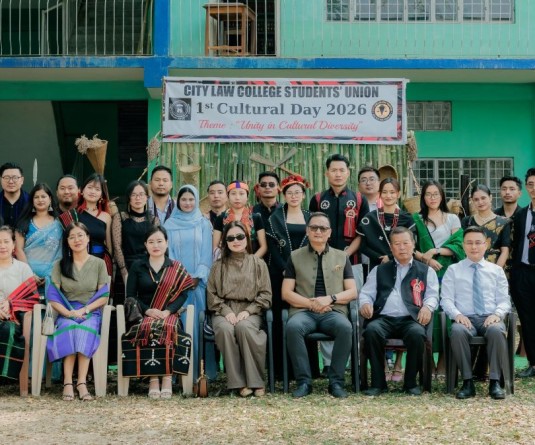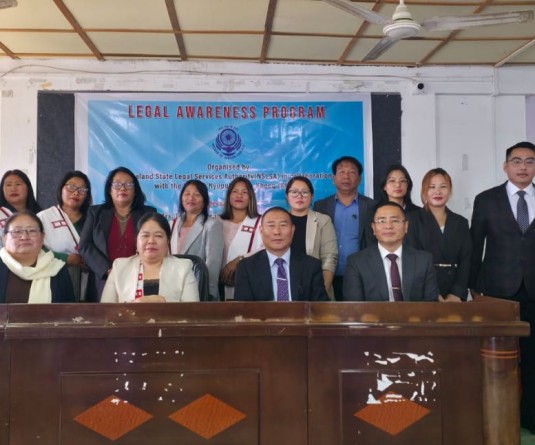
Ashiko Pfuzhe
Dimapur | November 2
Since introduction of Modern Indian Languages (MIL) and mother tongue text books in Nagaland in 1986, the State has come a long way in enhancing quality of education among school children.
According to a 2009 survey report, Nagaland State is ranked third in “mathematical achievement” among school students after Tamil Nadu and Manipur. The State is also placed third in “language achievement” after Tamil Nadu and West Bengal.
This was disclosed by Reader, Central Institute of Indian Languages (CIIL), Mysore, Dr. Kedutso Kapfo on the sidelines of the ongoing 5-day workshop for preparation of mother tongue text books in 17 Naga languages recognized by Government of Nagaland, being held at Hotel Kent.
In the context of Nagaland, Dr. Kapfo said that rural school children are faring better than their urban counterparts in terms of both mathematical and language achievements. He said according to a survey, the “achievements” of rural school children and urban school children are 69% and 54% respectively.
The reason for this is that urban areas have plenty of private schools which are reluctant to introduce mother tongue or MIL in the school curriculum, Dr. Kapfo observed.
Kapfo who had earlier served as an officer in the State Council of Educational Research & Training (SCERT) observed that most Naga children fare badly in mathematics and science because “coordination between their mental processing signal and language processing signal was very weak.” He said this was due to abrupt introduction of foreign languages like English among school children.
He said mother tongue has “organic connection” with thought including mathematical and scientific concepts and that children’s trend of thinking starts at home with their respective mother tongues.
Therefore, training children to think effectively in their mother tongues would boost their rational and innovative thought processes, the CIIL Reader said.
Kapfo said one main objective of mother tongue, intrinsic to one’s culture and tradition, is to enhance and increase the mental abilities of children. “After all education is not only imparting knowledge but the priority is human development, to make children useful to society. Realizing the importance of mother tongues in human development, Government of India has also changed earlier Ministry of Education & Culture to Ministry of Human Resource Development”, he said.
Kapfo said the next workshop slated for January-February, 2013, will focus on preparation of text books for Class IX and X for all 17 languages recognized by the state government.
In the intervening period, language officers will be touring villages in all eleven districts to collect material for preparation of text books, he said. The mother tongue text books will incorporate cultural and traditional values of all tribes. Around 50 employees of the Education Department including 15 language officers, 17 language assistants, 17 typists and a proof reader are attending the workshop with Dr. Kapfo as resource person.






